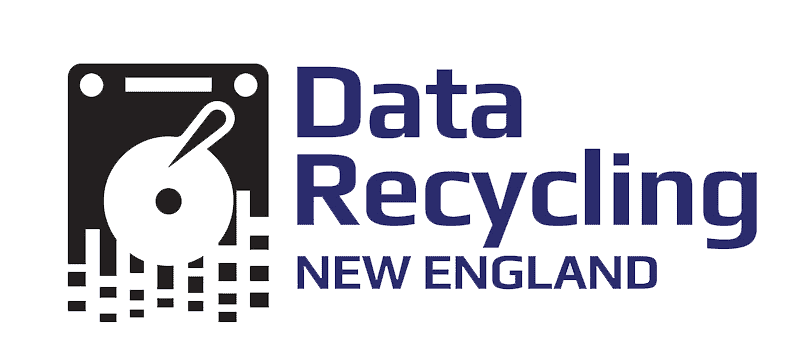With the rapid pace of technological advancements, the need to responsibly recycle electronics has become more critical than ever. Whether it’s an outdated smartphone, a worn-out laptop, or obsolete home appliances, e-waste can quickly pile up, creating environmental concerns and potential security risks. Massachusetts residents and businesses must handle e-waste with care to ensure compliance with environmental regulations and protect sensitive data.
This guide will walk you through the essential steps of responsibly recycling electronics in Massachusetts, including legal considerations, environmental regulations, and the importance of data security.
Why Responsible Electronics Recycling Matters
E-waste, or electronic waste, refers to discarded electronic devices like computers, mobile phones, and televisions. These items contain hazardous materials such as lead, mercury, and cadmium, which can leach into the environment if not disposed of properly. In Massachusetts, improper disposal of e-waste is not only harmful to the environment but also illegal.
Massachusetts law prohibits disposing of electronics in the trash. In 2006, the state banned the disposal of cathode ray tubes (CRTs) from devices like old televisions and computer monitors due to the high lead content. This regulation was expanded in 2022 to include additional items like computers and certain home appliances. Proper recycling is crucial for both environmental sustainability and legal compliance.
Beyond environmental concerns, improper recycling poses a significant risk to personal data security. Many electronic devices store sensitive information, and failing to securely wipe or destroy data before recycling can lead to data breaches or identity theft. Responsible electronics recycling isn’t just about protecting the planet, it is about protecting your personal and business information too.
Massachusetts Environmental Regulations on E-Waste
The Massachusetts Department of Environmental Protection (MassDEP) enforces specific waste bans to minimize the environmental impacts of hazardous materials often found in electronics. Although Massachusetts does not have an explicit statewide ban specifically labeled as “electronics,” many electronic devices fall under broader categories of banned items, including:
- Cathode Ray Tubes (CRTs): Devices with CRTs, typically found in older TVs and computer monitors, are banned due to hazardous lead content.
- Mercury-Containing Products: Electronics with screens (e.g., flat-panel monitors, laptops, tablets) typically contain mercury and are banned from disposal.
- Ferrous and Non-Ferrous Metals: Nearly all electronics, including computers, printers, audio equipment, and other devices, contain significant metal components that fall under this waste disposal ban.
While electronics as a category are not exclusively named, these specific disposal bans effectively require businesses and residents in Massachusetts to responsibly recycle their electronic devices rather than sending them to landfills or incineration facilities.
Recycling electronic waste helps protect the environment, supports resource recovery, and ensures compliance with MassDEP regulations. Click here for more information on MassDEP bans on Mass.gov
Ban on Electronic Waste Disposal in Landfills
Massachusetts prohibits certain electronics from being disposed of in landfills or incinerated. This includes devices containing hazardous components, such as:
- Computers
- Monitors
- Televisions
- Printers
- Audio equipment
Businesses and residents must recycle these items through certified electronics recyclers, ensuring proper handling and disposal of hazardous materials.
Manufacturer Take-Back Programs
Under the Massachusetts Product Stewardship Program, manufacturers of electronics are responsible for facilitating the recycling of their products. Many electronics manufacturers offer free take-back programs that allow consumers to return old devices to be safely recycled. This not only helps reduce the environmental impact but also provides consumers with an easy, legal way to dispose of their old electronics.
Recycling and Disposal Fees
Some electronics recycling centers in Massachusetts may charge a fee for recycling certain items, especially older devices like CRT televisions or large appliances. These fees help cover the cost of safely dismantling and recycling the components of these devices, especially when handling hazardous materials.
How to Recycle Electronics in Massachusetts
There are several ways to responsibly recycle your electronics in Massachusetts:
Reliable Electronics Recyclers
When recycling electronics, it’s important to choose a reputable and experienced recycling provider to ensure proper handling of hazardous materials and secure data destruction. Some recyclers are certified by organizations like e-Stewards or R2 (Responsible Recycling), which means they follow strict environmental and data security standards.
However, certification is not the only indicator of a responsible recycler. Many established and trusted electronics recyclers, including local businesses with years of industry experience, offer secure and environmentally friendly disposal options. Massachusetts residents can find reliable electronics recycling providers through the MassDEP website, their local municipality, or by working with a well-reviewed and transparent recycling company.
Local Recycling Programs
Many towns and cities in Massachusetts offer local recycling programs for electronics, often partnering with recyclers. These programs may host designated drop-off events or have permanent collection sites where residents can safely dispose of their e-waste.
Donate or Reuse
Before recycling, consider donating working electronics to charities or schools. Many organizations accept functional devices and provide them to those in need, extending the life of your electronics and reducing overall waste.
For more on where you can recycle electronics click here.
Data Security and Destruction: What You Need to Know
While environmental regulations are a significant part of responsible electronics recycling, protecting your personal information is equally important. Many electronic devices, from computers to smartphones, store sensitive data, and failing to properly erase this data before recycling can lead to identity theft or other data breaches.
Here are the steps you should take to protect your data:
Wipe Your Devices
Before recycling any electronic device, it’s essential to ensure that all data has been wiped. For computers, this involves performing a factory reset or using specialized software to securely erase the hard drive. For smartphones, use the device’s factory reset option, which deletes all personal information and returns the device to its original settings.
Remove Storage Media
In some cases, simply wiping the data may not be enough. It’s a good idea to physically remove storage media like hard drives or memory cards from devices before recycling them. These components can be destroyed separately using physical destruction methods like shredding or drilling holes through the drive.
Certified Data Destruction Services
Many e-waste recyclers in Massachusetts offer certified data destruction services. These services can securely destroy sensitive data, either by overwriting it multiple times or physically shredding hard drives and other storage media. Look for recyclers that provide a certificate of data destruction for added peace of mind.
Data Privacy Laws
Under the Massachusetts Data Security Regulation (201 CMR 17.00), businesses handling personal information must take reasonable steps to secure it, including during disposal. This means ensuring that any data stored on electronic devices is properly erased or destroyed to prevent unauthorized access. Many businesses work with reputable electronics recyclers that provide secure data destruction services, such as hard drive shredding or certified data wiping, to comply with these regulations. Failing to properly dispose of sensitive data can result in regulatory penalties, making secure recycling a critical step in IT asset management.
Recycling electronics in Massachusetts is not only a legal obligation but also an ethical responsibility. With proper recycling, we can reduce the environmental impact of e-waste while protecting ourselves from data security risks. By following the guidelines provided, including utilizing certified and trusted recyclers, taking advantage of manufacturer programs, and ensuring secure data destruction, residents and businesses can do their part to promote sustainability and security.
Massachusetts offers many resources to help individuals and organizations recycle electronics responsibly, ensuring compliance with both environmental and data privacy regulations. So, whether you’re clearing out old devices or upgrading your office technology, take the time to recycle responsibly and securely.

